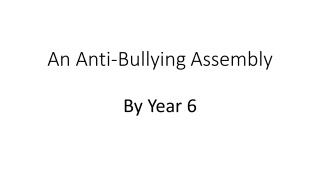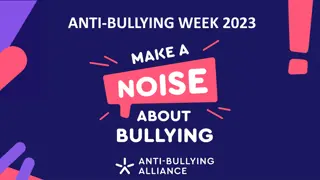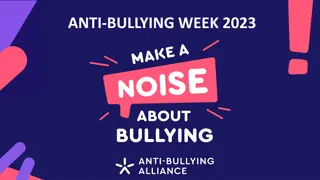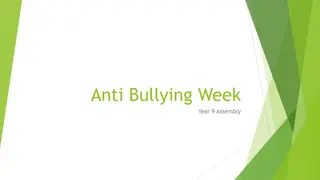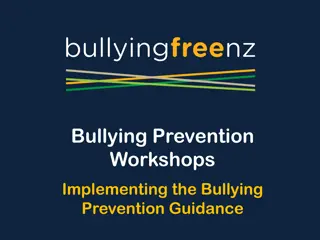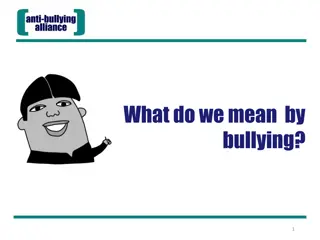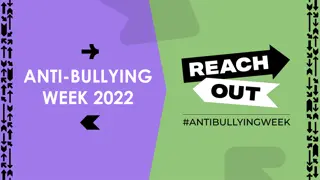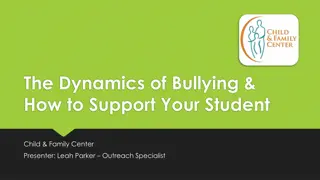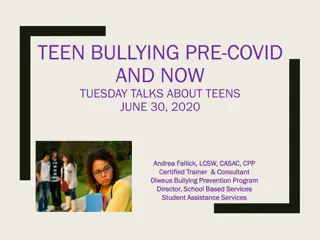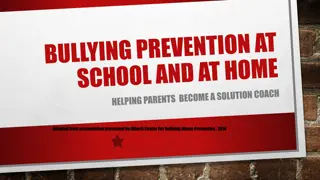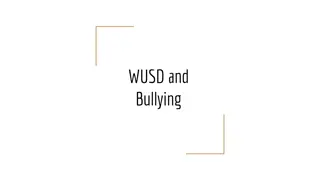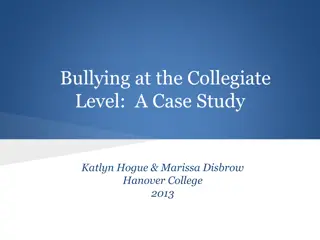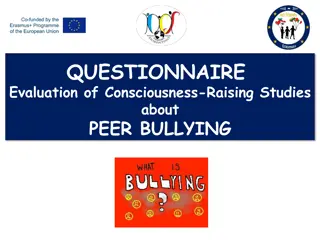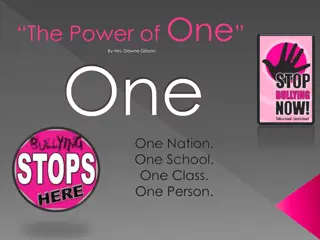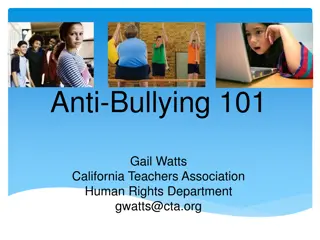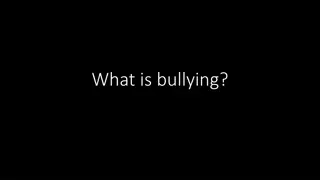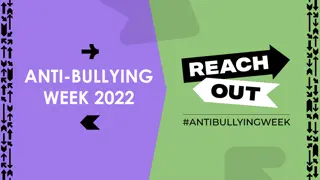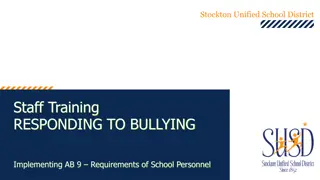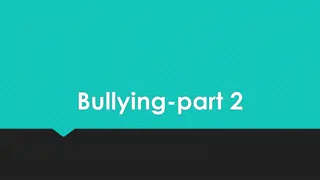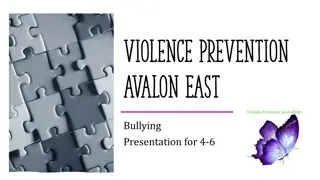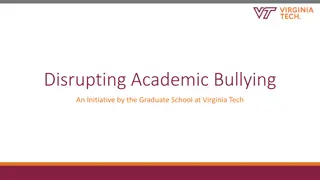Understanding Bullying in Secondary School Assemblies
Bullying, as defined by the Anti-Bullying Alliance, involves intentional harm with an imbalance of power. It can be physical, verbal, psychological, or online. Challenging bullying is crucial, and everyone, from students to teachers, has a role to play. Different types of bullying include physical, verbal, psychological, and online. It's important to reach out for support and speak up against bullying to create positive change in schools and communities.
Download Presentation

Please find below an Image/Link to download the presentation.
The content on the website is provided AS IS for your information and personal use only. It may not be sold, licensed, or shared on other websites without obtaining consent from the author. Download presentation by click this link. If you encounter any issues during the download, it is possible that the publisher has removed the file from their server.
E N D
Presentation Transcript
What is bullying? Secondary school assembly
Challenging bullying Bullying affects millions of lives and can leave us feeling hopeless. But if we challenge it, we can change it. And it starts by reaching out. It doesn t stop with young people. From teachers to parents and influencers to politicians, we all have a part to play. Reach out to someone you trust if you need to talk. Reach out to someone if you know they re being bullied. Reach out by being the change you want to see. It takes courage, but it can change lives.
What is bullying? The repetitive, The ABA (Anti-Bullying Alliance) defines bullying as: intentional hurting of one person or group by another person or group, where the relationship involves an imbalance of power. Bullying can be physical, verbal or psychological. It can happen face-to-face or online . Power imbalance Repetitive Hurtful Intentional
Types of bullying Physical Verbal Includes hitting, kicking, tripping, pushing or purposefully damagingother people s property. Includes name-calling, threatening, teasing, saying nasty or rude things to someone. Psychological Online Includes spreading lies about someone, playing nasty jokes or excluding people. Includes hurtful comments/messages/posts, excluding on purpose, spreading nasty gossip and imitating others online.
Talking about bullying Two times you have reached out to someone in need 1 Two times someone has reached out to you when you needed help 2
Lets reflect: How wonderful it is that no one has to wait, but can start right now to gradually change the world - Anne Frank
Who can we reach out for support to in our school? Staff Name here Staff Name here Staff Name here 3 1 2


